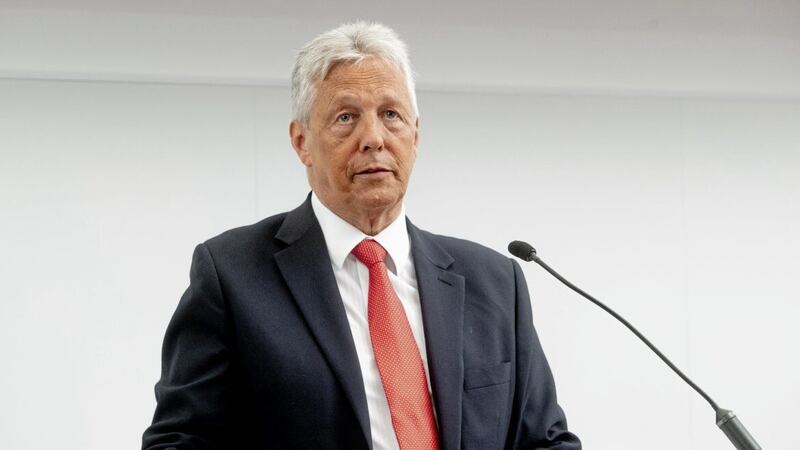I began worrying that I had done Peter Robinson wrong.
I was wondering had I infused his words with my own views and aspirations and constructed a premise that was not there.
So, I went back and looked. It is a few years, June 2018 to be precise, since he delivered a speech that I described as the most important made by a unionist leader in modern times. My claim was that he had proposed that unionism needed to engage in discussing a permanent solution to the constitutional issue, to allow for current political issues to be addressed.
The speech began by extolling the political dictum that when a problem cannot be solved, it needs to be enlarged. It explored the difference between a ‘political process’ and a permanent solution and while extolling what had been achieved by ‘process’, an absence of daily violence for one thing, it argued that it was no substitute for permanence. Robinson used a pithy and insightful image of ‘pit stops’ to describe the periods, like now, when the political institutions are not working and, consequently, the damage that is done to politics.
He then entered the lion’s den or as he describes it, the issue where some people begin to feel their chests tightening. He talks about how and who would negotiate the parameters and the content of a border poll. His exact words are: ‘I am not talking of the shape of the new state that would emerge if there ever was a vote to exit the UK. I am alluding to the need to agree a process for negotiations, timescales and not only the means of reaching agreement on all the particulars but also who would be involved in negotiating such an agreement’.
So, there you have it. There was no need for me to be worried, I had not done Peter down. The man who has been described as the best thinker, the gifted strategist, the most consistent influencer within unionism saying that political unionism had to join the discussion about the permanent solution to relationships within the island of Ireland. And that those discussions had to take place long before a border poll.
Unfortunately, he made the speech, as is the wont of many politicians and churchmen, when he was out of power.
Unionism responded with the weapon of silence and while that has muffled the importance of the speech, it has not killed off the import of the ideas and the promptings coming from one of their own; one who is often afforded the same status as Ian Paisley.
The question ‘who would be involved in negotiating such an agreement’ is as pertinent to the debate as is the agreement itself. All the northern political parties will be at that table and, of course, the two governments will be central. Given the state of British politics at this moment, it would be hard to envisage that government giving serious attention to anything beyond immediate concern. Which leaves the Irish government slightly on their own but, ironically, having the freedom to develop and promote solid and effective ideas that address the crumbling politics of the north.
Leo Varadkar, the new taoiseach, has a tetchy relationship with unionism because of issues he raised around the protocol. It is easy to envisage the Irish Department of Foreign Affairs advising him to be contrite and reconciliatory in his dealings with the unionist parties. He would be much better advised to adopt and develop Peter Robinson’s speech as his core policy and to use it both as his calling card and as a battering ram against the fear and the intransigence of the unionist parties.
His main task is to open a crack in that wall of resistance. It is that crack, as the well-known song says, that lets the light in. Who better to write the Irish version than Peter Robinson.









